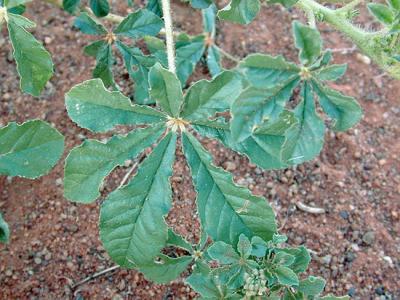A group of enterprising Kenyan women living in Minnesota US are growing and selling a rare type of plant to local stores and pharmaceutical companies, a move that has turned them into overnight millionaires even as the plant continues to be revered in Kenya
The women living in Burnsville community area, one of the areas predominantly occupied by immigrants, have been growing the plant after one of them was advised of the health benefits when she visited a doctor. Searching for it everywhere to no avail, the woman bumped into a Latino group in the neighbouring Iowa state who were not only growing it for consumption, but were making a kill in sale.
Buying the first 50 seeds opened a window of opportunity that has now seen over 40 women actively engaged in the venture, and transformed livelihoods in the area through construction of homes and schools in the little known town.
The plant, known as spider plant, is an annual herb with hairy, often purple stems and many branches growing to a height of about one metre. Its leaves are edible plant has edible leaf has up to seven leaflets spreading like fingers, which are usually 2-10 cm long and 2-4 cm wide.
In Kenya, the plant has traditionally been treated as an invasive species,which has stood in the way of other crops’ growth and affected yields, but recent discoveries on its health benefits including managing diabetes, blood pressure and other diseases has seen massive domestication.
In US however, where the benefits have long been known and the demand on an ever upward trajectory, the Kenyan farmers are not just courting retail consumers, but also pharmaceuticals keen on using the plant as the active ingredient in manufacture of drugs.
One such pharmaceutical company Lebadom Pharmaceutical has entered into a contract with the farmers where they supply the leaves on a weekly basis. “We initially had three farms where we could grow and harvest approximately 100 kilos of the leaves with majority of our customers being the ordinary housewives in our neighbour hood who knew of the benefits of the plants but couldnt get the plant anywhere in the area. Next came the retail stores who then forced us to the drawing boards in terms of increasing acreage under spider plant cultivation. But the contract with Lebadom Pharmaceutical has been a game changer and has seen us even recruit more farmers,”said Milkah Nyakeri, one of the pioneer farmers in the project.
Under the arrangement with the pharmaceutical company, the women group is supposed to supply between 200 and 500 kilos of the plant leaves weekly. “Its a tall order which has meant increase in acreage under cultivation and more workforce,”said Nyakeri. The group has now cleared an extra acre to increase cultivation. The acre is sub divided into ten farms with about ten women tending to each garden.
Workforce has been increased from the initial 40 to some 180 involved in tending and harvest of the leaves. “We pay per week with some of the money pulled back to our savings scheme. Each member has to contribute 25 percent of their pay to the scheme,”Nyakeri further added. On average each farmer earns between $50 and $60 dollars, about Sh4,000 to Sh5,000, each week.
The saving scheme which is currently in its second year has also seen the group invest in rental property which is bringing them extra income. “We have houses for sale and rentals because we realized most of the immigrants living around have no decent homes. We have invested in low cost housing for them. Immigrants in other African countries and Latinos are also among those who work in our farm projects on temporary basis. We are in agreement with them, where after contributing a certain amount of money towards the home, they then come and work for at least a month in the garden and then we start deducting some of the pay to go into paying for their homes. It has worked successfully,”said Wendy Mueni the treasurer of the group.
The project has so far built over six housing blocks which include four rental units. All the houses have already been taken. The group, aware of the rising demand for the wonder plant in other states, and with retail stores unprecedented appetite, are now mulling a value addition venture to reap maximum benefits.
 Already they have purchased a milling machine that will assist them in the manufacture of spider plant flour. Plans are also underway to create other value added products like cookies. This stems from the fact that a kilo of leaves especially by the retail stores goes for approximately $2 dollars, Sh200, but spider flour in other states growing the plant goes for a staggering $10, or Sh8,000.”You can see how much we are losing by not getting into value addition so its now a matter of when rather than if. We feel it will also open market opportunities for our population in Minesota,”Wendy said.
Already they have purchased a milling machine that will assist them in the manufacture of spider plant flour. Plans are also underway to create other value added products like cookies. This stems from the fact that a kilo of leaves especially by the retail stores goes for approximately $2 dollars, Sh200, but spider flour in other states growing the plant goes for a staggering $10, or Sh8,000.”You can see how much we are losing by not getting into value addition so its now a matter of when rather than if. We feel it will also open market opportunities for our population in Minesota,”Wendy said.
The group’s immediate plan for the future is to invest in Kenya’s bubbly real estate with a plan already in the offing to sink money into the fast developing low cost housing sub sector.